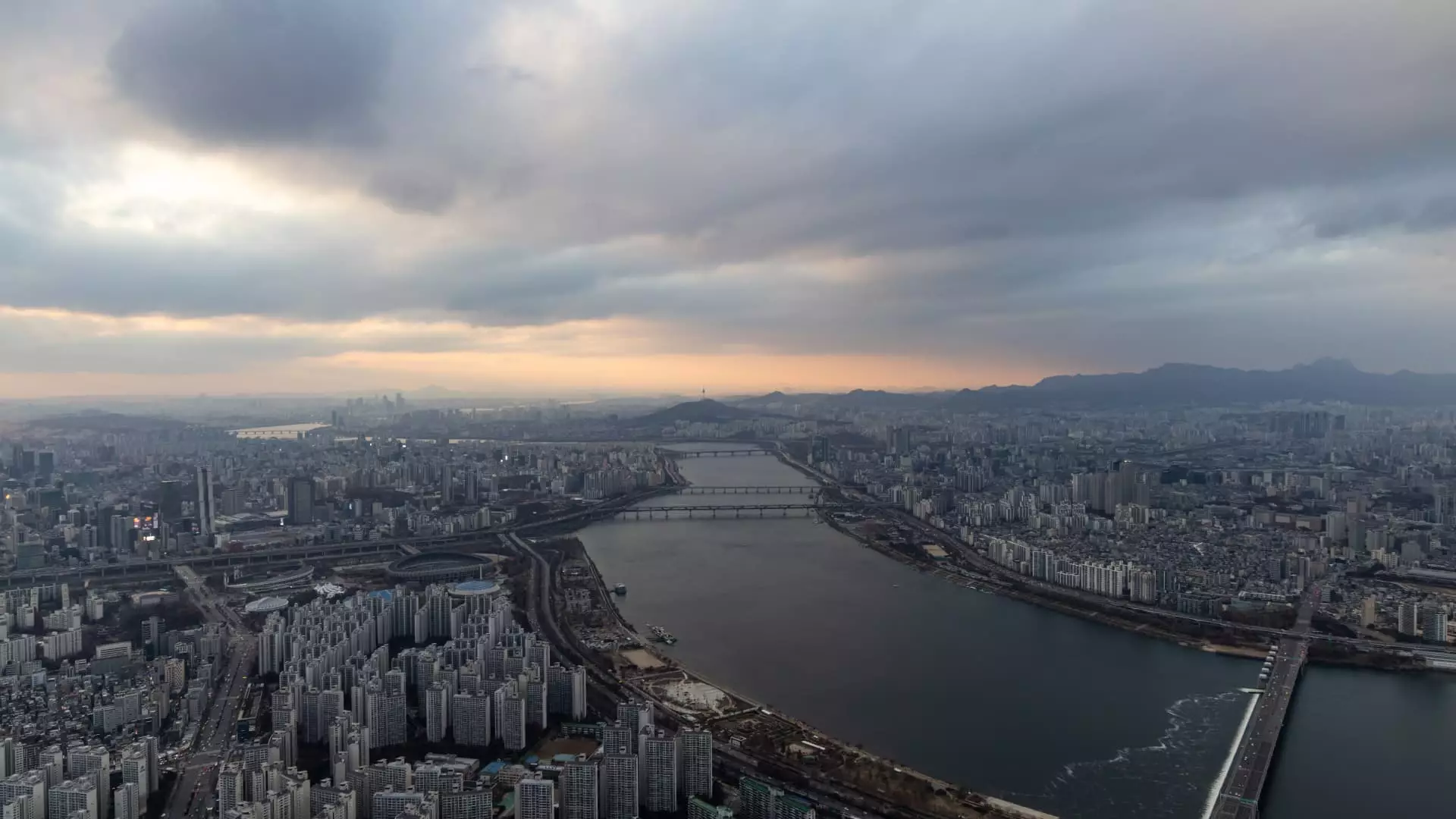In the first quarter of 2025, South Korea’s economy took a sharp nosedive, reflecting a disturbing shift in its long-term economic landscape. The preliminary figures revealed a year-on-year contraction of 0.1%—the first such retreat since late 2020. This stark drop not only missed analysts’ predictions of a modest 0.1% growth, but it also starkly contrasts with the previous quarter’s 1.2% increase. Such alarming statistics provide critical insight into a nation grappling with not only economic decline but also significant political turbulence.
Construction Woes: The Collapsing Core
At the heart of this economic downturn lies a dramatic 12.4% contraction in the construction sector, which serves as a bellwether for overall economic health. The decline in construction isn’t merely an isolated crisis; it signifies deeper structural issues within the economy, where confidence is waning, and investments are evaporating. An economy based on construction should thrive with robust demand, but it appears that both public and private sectors are pulling back, reflecting a loss of faith in the future.
Policy inaction, marked by the South Korean government’s inability to create stability amid political strife, is largely to blame. Investors are understandably hesitant to commit resources in an environment marred by uncertainty, sparking a vicious cycle of stagnation that could cripple the economy for years to come.
Bank of Korea’s Warning: A Bleak Forecast
The Bank of Korea’s (BOK) monetary policy statement on April 17 revealed a disheartening prediction for GDP growth in 2025, signifying a substantial reduction from earlier expectations. The recent stagnation of domestic demand and exports, compounded by tumultuous political dynamics, has thrown cold water on projections. It raises a crucial question: Can the BOK effectively navigate these treacherous waters?
Furthermore, the BOK decided to maintain interest rates at 2.75%, but industry experts hint at looming rate cuts as a necessary, albeit desperate, response to the economic malaise. Jeff Ng from Sumitomo Mitsui Banking Corporation foresees additional rate reductions, a tactical maneuver that hardly inspires confidence in a rapidly deteriorating economic environment. This suggests that, rather than a proactive economic strategy, authorities are resorting to reactive measures that fail to address fundamental problems.
Political Uncertainty: An Economic Poison
The wretched state of South Korea’s economic health cannot be disconnected from its political landscape. The impeachment upheaval surrounding former president Yoon Suk Yeol and prime minister Han Duck-soo not only eroded public trust but created an environment of chaos that deters robust economic action. With elections scheduled for June 3, the mudslinging and uncertainty surrounding the political scene foster an atmosphere ripe for stagnation.
The reinstatement of Han as acting president is perplexing and leaves many divided regarding a clear path forward. The political narrative has become one of distraction instead of productive governance. As the country stands on the brink of potential change, all eyes will be on the ensuing elections, yet the waiting game only deepens economic woes in the interim.
A Fragile Trade Framework: The External Pressures
South Korea has found itself in the crosshairs of an escalating global trade war. Despite temporary relief from blanket tariffs imposed by the previous U.S. administration, the persistent 25% tariffs on key South Korean exports like steel and automobiles hinder economic potential. The mere promise of negotiation, as indicated by upcoming talks between South Korean officials and the U.S., raises more questions than it answers.
While Hyundai and Kia have succeeded in cultivating brand loyalty within the U.S. market, their future profitability hangs in the balance, as political uncertainties overshadow trade discussions. The upcoming election could radically shift America’s stance on trade, exacerbating South Korea’s already challenging situation.
The Urgency for Transformative Change
The need for a robust, multifaceted response has never been more pressing. If South Korea is to escape this downward spiral, it must embrace profound structural reforms—both economically and politically. A commitment to stability and transparency can help restore critical investor confidence.
Simultaneously, a reevaluation of trade policies through a collaborative lens could mitigate the adverse impacts of external pressures. The forthcoming elections represent a pivotal moment; it’s incumbent upon the leadership to articulate a vision that bridges the chasm between economic realities and political feuds. Only through strong, innovative policies can South Korea hope to reverse its disturbing economic trajectory and safeguard its future.


Leave a Reply